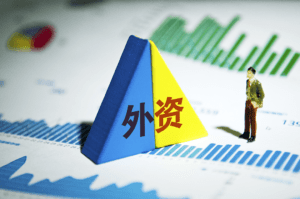

The latest data from the Stock Exchange of Hong Kong shows that foreign investors have increased their holdings of stocks in Shanghai and Shenzhen each month since November through schemes such as the Shanghai-Hong Kong stock Connect and shenzhen Stock Connect. Compared with July this year, the scale of foreign investment in August more than doubled, “buy China” is becoming the mainstream trend. Some overseas media and institutions believe that China’s steady economic growth and strong resilience in the face of the COVID-19 pandemic have strengthened investors’ long-term investment confidence in the Chinese market and increased their expectations for market opportunities brought by the high-quality development of the Chinese economy.
CNN recently reported that blackRock, Goldman Sachs, Fidelity International and other well-known financial institutions are advising clients to continue to “buy China.” Bloomberg believes that, including stock and bond markets, global investment funds continue to flow into The Chinese market, highlighting China’s “market gravity” and global investors’ confidence in China’s economic development.
On the one hand, the sound fundamentals of the Chinese economy are making long-term investment attractive. Against the backdrop of the severe impact of the pandemic on the world economy, the resilience of the Chinese economy is commendable. In 2020, China’s economy only declined in the first quarter, then bucked the trend and accelerated its growth, becoming the only major economy in the world to achieve positive growth in that year.
Luca Paolini, chief strategist at BTG Asset Management, which manages $746 billion in assets, believes the fundamentals for investing in China are sound in the long term. The renminbi has outperformed other major currencies and bond yields have done well. “For foreign investors, China is clearly completely ‘investable’.”
The AVERAGE price-to-earnings ratio of the CSI 300 index, compared with the S&P 500, is near its most attractive level since 2007, bloomberg data show, supporting further foreign buying. A stronger renminbi has further made Chinese stocks and bonds more attractive, and foreign buyers’ holdings of Chinese sovereign debt have also grown.
Victoria Meow, head of Equities at Fidelity International Asia, said China’s economy is expected to maintain steady growth over the next decade, thanks to the growing purchasing power of its middle-income group.
Lakshman Sirivadna, former executive director of Sri Lankan think tank Pathfinder Foundation, believes that the huge domestic market is crucial for China’s economic recovery from the epidemic. This market and the growing well-off society continue to create demand and provide investment opportunities for global multinationals.
Leon Laurussa, vice President of ESCP Business School in Paris and foreign director of Confucius Institute for Business In Europe, said that French companies are optimistic about China’s investment and business environment and full of confidence in China’s economic development. Chinese companies have a leading edge in manufacturing, communications technology, e-commerce, artificial intelligence and big data, and foreign companies can get high returns investing in these sectors, he said.
On the other hand, the optimization of China’s economic growth structure brings long-term investment opportunities. Since the beginning of this year, China’s major economic indicators have maintained steady growth, the economy has been strengthening steadily, and new progress has been made in high-quality development. Some market participants have noted that the Chinese government’s recent strengthening of market regulation is aimed at optimizing the structure of future economic growth and achieving higher quality and more balanced growth.
PASCAL Blanc, chief investment officer at Calyon Asset Management, which oversees $2.1 trillion in assets, believes recent regulatory changes in some sectors in China are opening the door to new investment. In a report this month, it maintained a long-term positive view on China, arguing that recent market volatility presented an opportunity for investors to “increase their allocation to Chinese equities in their global portfolios”.
China’s push for high-quality development will have a positive impact, according to a medium-term investment outlook report released in July by BlackRock Inc’s BlackRock Intelligence Unit. For example, while developed economies are responding to the impact of the pandemic with unprecedented fiscal and monetary easing, China is avoiding “flooding” and seeking to reduce financial risks. These measures may affect economic growth in the short term, but could improve the quality of China’s economic development in the long run. It recommended a “substantial overweight of China” from a strategic perspective.




